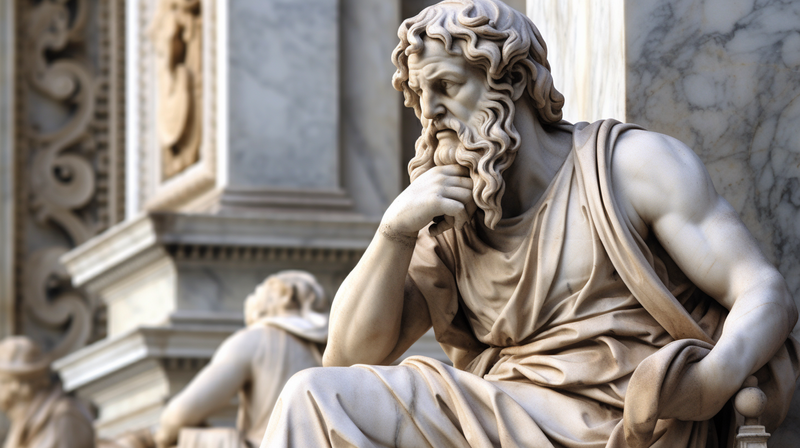Morality and Power in Plato's Republic
In Plato's profound discourse, the Republic, a magnum opus of intellectual inquiry, we traverse a cerebral landscape that intertwines the complex strands of Morality and Power. With meticulous artistry, Plato, the maestro of ancient philosophy, orchestrates a symphony of dialectic thought, unravelling the essence of justice and its intricate relationship to governance. Plato's scholarly brushstrokes create a tableau of intellectual exploration in this vast tapestry of ideas, engaging with timeless questions that transcend the boundaries of time and space.
Within the hallowed halls of academia, Plato's Republic is a testament to his enduring legacy. With erudite precision, he guides us through the labyrinthine corridors of moral philosophy, urging us to ponder the nature of justice and the virtues that underpin a just society. Far from a mere weaving of narrative, Plato's pen elucidates the principles of governance with keen insight and rhetorical prowess, inviting us to embark on a journey of intellectual discovery.
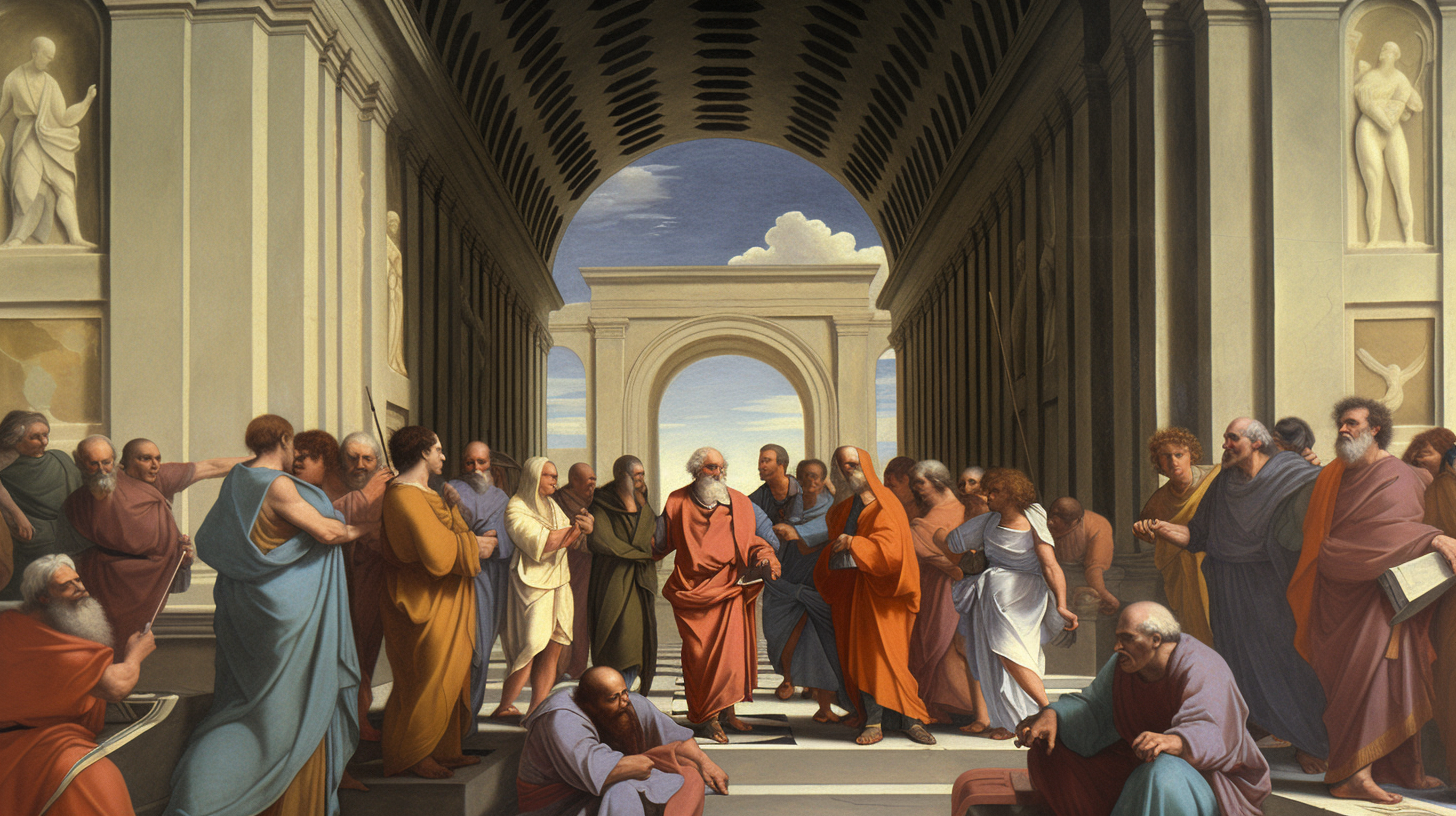
Plato's intellectual architecture eschews the superficial realm of rhetorical embellishments, opting for a language of reason and clarity. His discourse, reminiscent of Socratic dialogues, invites readers to engage in a dialectic dance of ideas, probing the foundations of justice and the ramifications of power. Through this literary medium, Plato seeks to unveil the paradoxes and complexities that arise when morality and management converge.
As we delve deeper into the Republic, Plato's central thesis emerges with resounding clarity. He posits that justice is not merely an abstract concept but an intrinsic component of a harmonious society. To illustrate this, Plato employs the metaphor of the state, a symbolic construct representing the ideal city-state and the microcosm of the individual soul. In this intricately constructed metaphor, justice manifests as the guiding principle that ensures the harmonious functioning of the state and the fulfillment of each individual's role within it.
Plato's treatise resonates with the challenges faced by societies throughout history, as the power struggle often threatens to erode the moral fabric that binds them. He implores us to recognize the inherent dangers of power divorced from morality, highlighting the perils of authoritarian rule and the exploitation of authority. By illustrating the corrupting influence of unchecked power, Plato endeavours to cultivate a discerning awareness among his readers, cautioning against the seductive allure of absolute control.
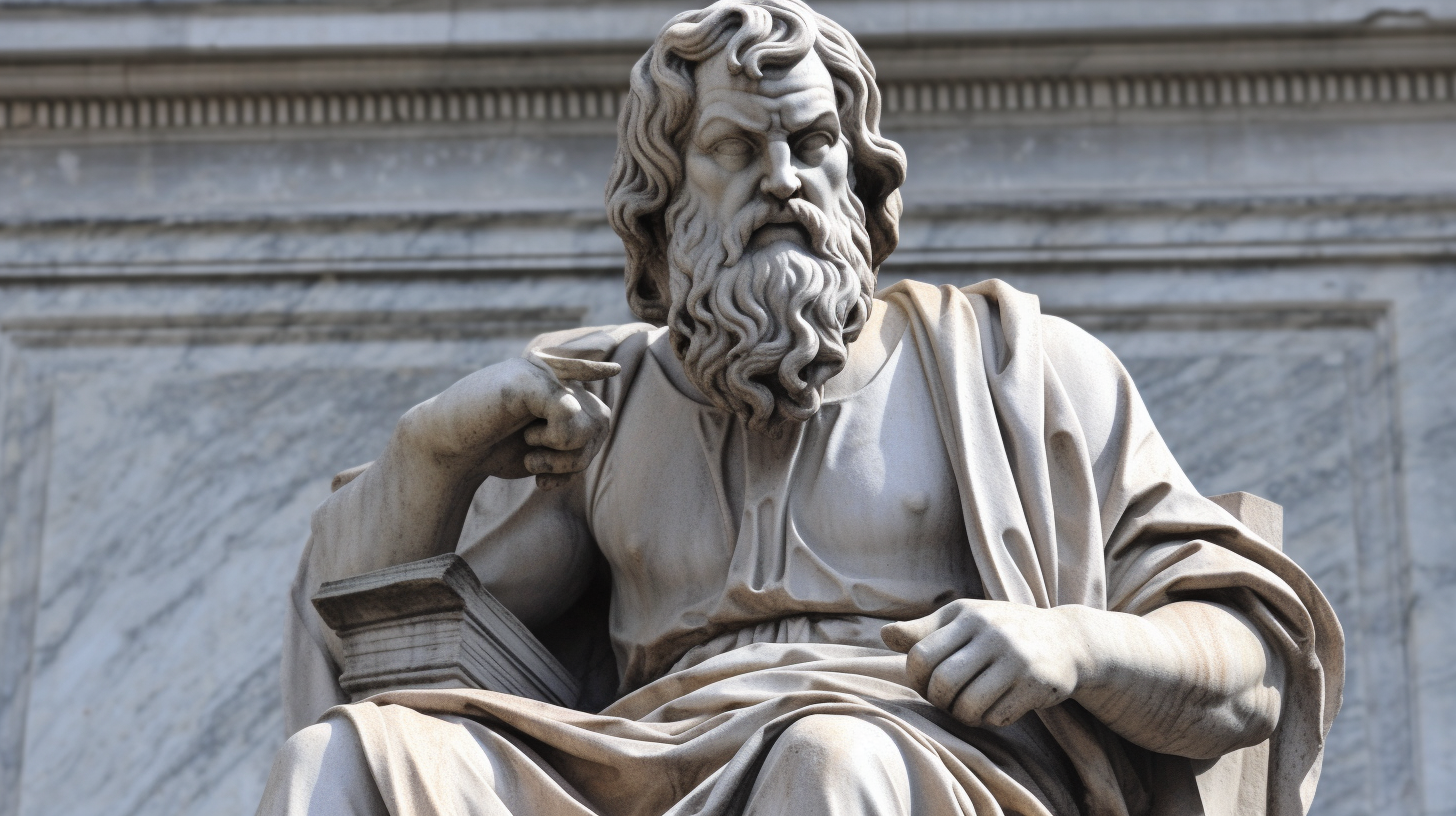
Throughout the Republic, Plato introduces the concept of the philosopher-king, an enlightened ruler whose pursuit of wisdom and commitment to justice establishes an ideal framework for governance. Through their philosophical training, these rulers possess the knowledge necessary to discern the true nature of justice and make decisions that align with the collective good. Plato's vision of the philosopher-king catalyzes reflection on the qualities and virtues leaders should seek, emphasizing the intrinsic connection between intellectual enlightenment and the exercise of power.
In this intellectual tapestry, Plato interweaves his notions of the tripartite soul, wherein reason, spirit, and desire strive for balance and harmony. The soul, an intricate microcosm reflecting the complexities of the larger society, requires the governance of reason to achieve its highest potential. Through this exploration, Plato encourages self-examination and the cultivation of inner virtue, recognizing that harmonizing the individual soul is a prerequisite for establishing a just society.
Our take: Plato's Republic resonates across the annals of time, its intellectual profundity serving as a timeless beacon in the quest for justice. The key takeaways from this remarkable discourse are worth remembering:
Justice as the Foundation: Plato presents justice as an indispensable pillar upon which the tower of a just society is erected. Its pursuit necessitates harmonizing power and morality, ensuring the equitable distribution of authority and the citizenry's well-being.
The Role of the Philosopher-King: Plato's concept of the philosopher-king offers an idealized model for governance, wherein intellectual enlightenment and moral virtue guide the exercise of power. This prompts us to reflect on the qualities and virtues we should seek in our leaders, recognizing the transformative potential of wisdom and just governance.
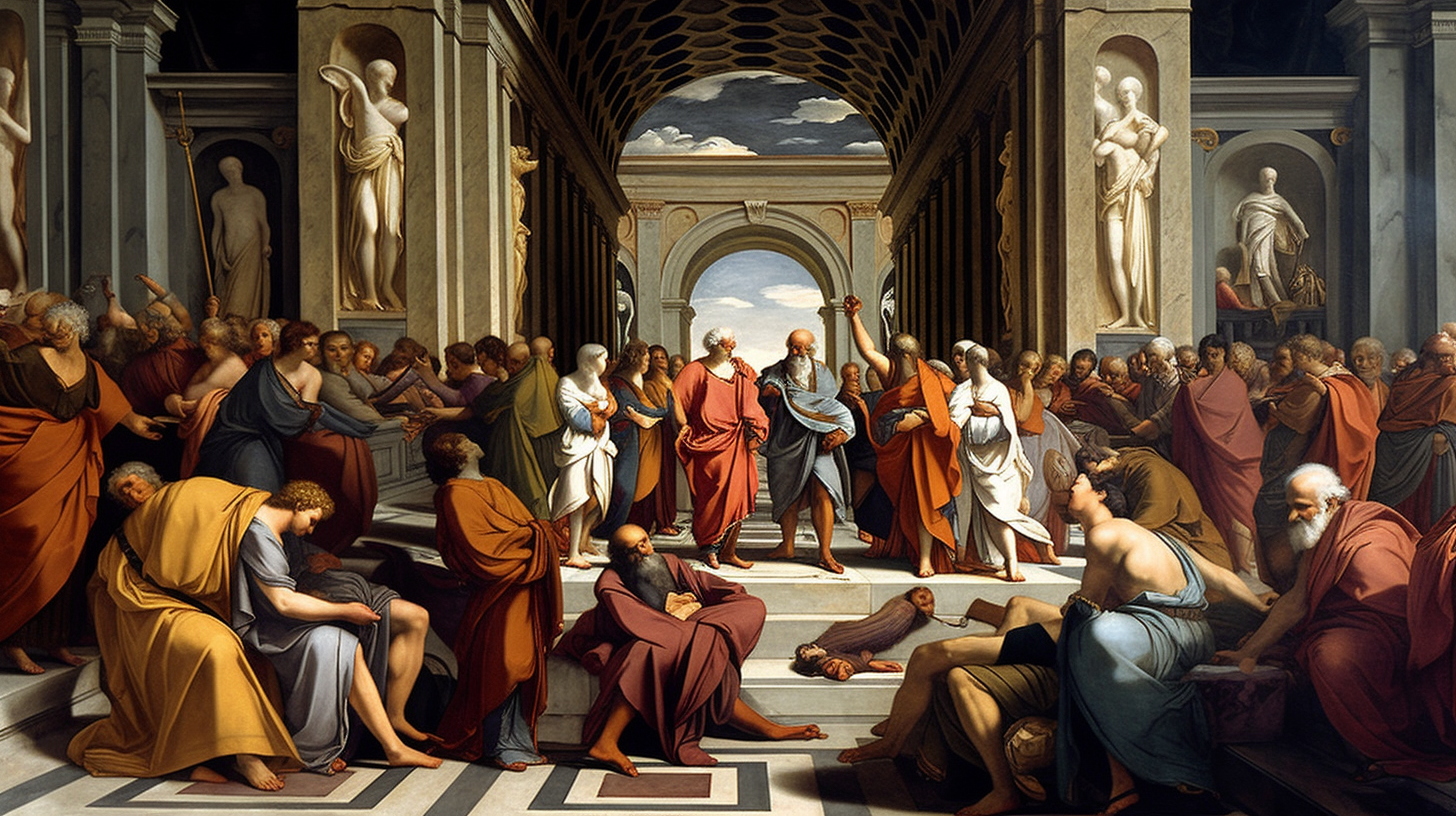
The Interplay of Reason and Passion: Plato's exploration of the tripartite soul underscores the delicate balance between reason, spirit, and desire. By aligning reason with moral virtue, we can navigate the complexities of power and governance, ensuring that a discerning intellect and a commitment to the common good guide our actions.
Self-Examination and Virtuous Cultivation: Plato's emphasis on self-reflection and cultivating inner virtue invites us to scrutinize our moral compasses. By developing a virtuous soul, we contribute to the betterment of society and lay the foundation for a just and harmonious collective existence.
The Good (καλός) that emanates from Plato's 'Republic' lies in its ability to inspire critical introspection and foster a deep appreciation for the intricate relationship between power and morality. It prompts us to strive for a society where justice flourishes and the exercise of power is tempered by wisdom and moral virtue. Through Plato's seminal work, we are reminded that pursuing justice is a collective endeavour that necessitates the engagement of the intellect, the cultivation of integrity, and an unwavering commitment to the common Good.
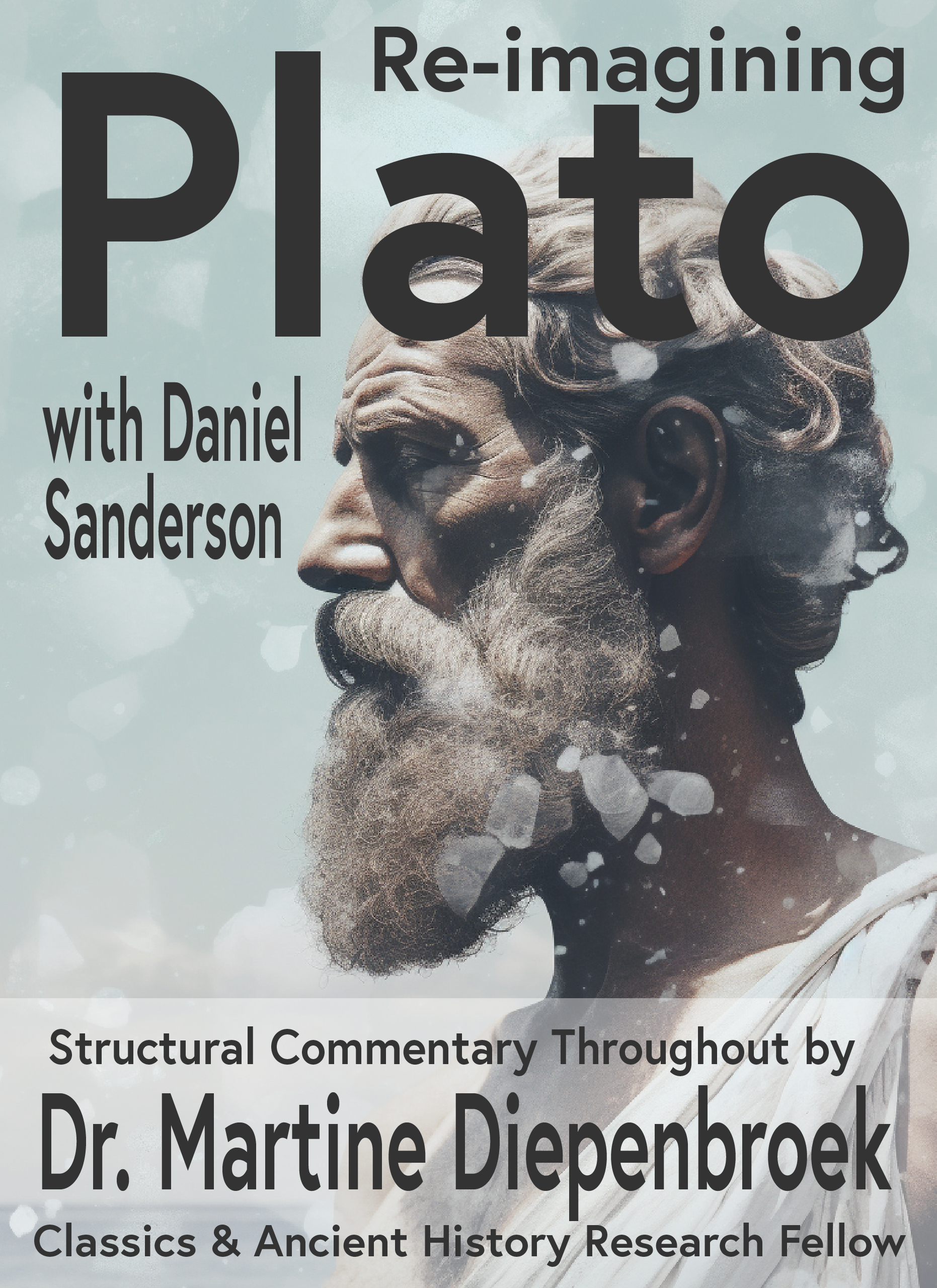
Plato Re-Imagined
This course includes 32 lectures covering most of Plato's dialogues and allowing the student to return to something divine. Divinity should resonate with secular and religious leaders alike. I present a compatible approach in my lecture on Consilience.
Also included with this course is a free book. If you pay for the course, you will get a physical copy of the book for free, mailed to your chosen address — anywhere on the planet!

